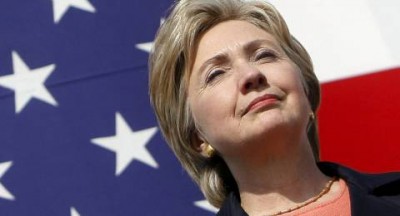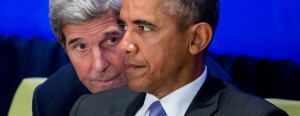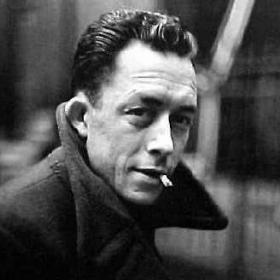The Idiocy of the US Presidential Race: The Masquerade Ball, “Fall Ghosts” and America’s Political Farce…

“They didn’t act like people and they didn’t act like actors. It’s hard to explain.”—J.D. Salinger, The Catcher in the Rye
“Eleanor Rigby . . . Lives in a dream/Waits at the window, wearing a face/That she keeps in a jar by the door/Who is it for?”—The Beatles, Eleanor Rigby
The idiocy of the presidential election race will soon be over, as will the endless pseudo-debates and the droning of the commentators, who have been prattling on for more than a year, as if there were something to consider about this sick farce; as if the deep state had not been directing this life-movie from the start.
Gore Vidal got a laugh when years ago he referred to Ronald Reagan as our “acting president.” But we’ve had four acting presidents since and their acts have left millions dead and wounded around the globe, including thousands of American troops. Now we have the sordid spectacle of an election campaign that is so patently phony that delusionary is the only word that can describe the thinking of those who take it seriously. Many Americans have acquiesced in this ongoing tragedy, playing their parts in this deadly charade. The ghosts of all America’s victims walk among us, and they will haunt us until we come to life by admitting our own complicity in their deaths. The show must not go on, but it will, as long as we keep acting our parts.
Norman O. Brown so well describes our stage set:
“Ancestral voices prophesying war; ancestral spirits in the danse macabre or war dance; Valhalla, ghostly warriors who kill each other and are reborn to fight again. All warfare is ghostly, every army an exercitus feralis (army of ghosts), every soldier a living corpse.”
 The Obama administration repeatedly sets the stage by talking about and waging an endless war, a 30-year war, a long struggle, an open-ended war. Soon Obama’s feral, war loving understudy, Hillary Clinton, will take center stage as he exits right, after promoting her. “This is not me going through the motions here,” he recently said. “I really, really, really want to elect Hillary Clinton.” The role-playing, black face of empire will be replaced by the role-playing female face of empire as the audience cheers, hiding from their masked selves their part in a face-saving, phony performance. Without a complicit audience, the performance can’t go on. But it does, or, as Kurt Vonnegut put it, “So it goes.” But the act is wearing thin.
The Obama administration repeatedly sets the stage by talking about and waging an endless war, a 30-year war, a long struggle, an open-ended war. Soon Obama’s feral, war loving understudy, Hillary Clinton, will take center stage as he exits right, after promoting her. “This is not me going through the motions here,” he recently said. “I really, really, really want to elect Hillary Clinton.” The role-playing, black face of empire will be replaced by the role-playing female face of empire as the audience cheers, hiding from their masked selves their part in a face-saving, phony performance. Without a complicit audience, the performance can’t go on. But it does, or, as Kurt Vonnegut put it, “So it goes.” But the act is wearing thin.
The autumnal season and especially the Halloween weekend of ghosts, the dead, and masks has me thinking of my own experience with acting, and how understanding the nature of our complicity in a mass act of bad faith is so important.
Having grown up as the only brother among seven sisters, I was always my parents’ favorite son. With such dumb luck, I never felt the need to be someone I wasn’t and so accepted my favored fate. But from an early age, I learned from my sisters what it meant to “put on your face.” Like most girls in a cosmetic culture, they would stand or sit in front of a mirror dutifully applying lipstick, cover-up, and mascara (Italian, maschera, mask) in preparation for their entrances onto the social stage where they would face so many other faces facing and eyeing them. Mirrors meeting mirrors, looking-glass selves. It seemed to the boy I was, such an exhausting act.
At the time I had only a dim awareness of life the movie.
Then, when I was a young teenager, I had the great opportunity to learn how to be a public phony and put on a face. I got to lie to a national television audience and got paid for my deception. The show was a very popular one—To Tell the Truth—one of many game shows my parents, sisters, and I appeared on. We were a “theatrical” family, not trained actors, but a brood of faces unconsciously hoping to discover who they were through their acts. My parents had started this by accepting an invitation to appear on a show hosted by Johnny Carson, Do You Trust Your Wife? (The show was later renamed Who Do You Trust?—an apt, albeit grammatically incorrect, appellation for the paranoid Cold War years.)
But I didn’t then care about politics; I just wanted to put on a good face and lie well while ostensibly telling the truth. I succeeded by convincing two of the celebrity panelists that I was who I wasn’t—Robert McGee—and getting paid $250 for my act. Lying seemed so easy; all you needed was a good mask and a convincing demeanor. This was my public lesson in “putting on your face.”
Ever since then, I’ve been fascinated by masks, liars, and the role of acting on the social stage.
 As the Halloween weekend transpires, this enchantment increases. I think of how all persons are, by definition, masked, the word person being derived from the Latin, persona, meaning mask. Another Latin word, larva, occurs to me, it too meaning mask, ghost, or evil spirit. The living masks light up for me as I think of ghosts, the dead, all the souls and spirits circulating through our days. While etymology might seem arcane, I rather think it offers us a portal into our lives, not just personally, but politically and culturally as well. Shakespeare was right, of course, “all the world’s a stage,” though I would disagree with the bard that we are “merely” players. It does often seem that way, but seeming is the essence of the actor’s show and tell. But who are we behind the masks? Who is it uttering those words coming through the masks’ mouth holes (the per-sona, Latin, to sound through).
As the Halloween weekend transpires, this enchantment increases. I think of how all persons are, by definition, masked, the word person being derived from the Latin, persona, meaning mask. Another Latin word, larva, occurs to me, it too meaning mask, ghost, or evil spirit. The living masks light up for me as I think of ghosts, the dead, all the souls and spirits circulating through our days. While etymology might seem arcane, I rather think it offers us a portal into our lives, not just personally, but politically and culturally as well. Shakespeare was right, of course, “all the world’s a stage,” though I would disagree with the bard that we are “merely” players. It does often seem that way, but seeming is the essence of the actor’s show and tell. But who are we behind the masks? Who is it uttering those words coming through the masks’ mouth holes (the per-sona, Latin, to sound through).
Halloween. The children play at scaring and being scared. Death walks among them and they scream with glee. The play is on. The grim reaper walks up and down the street. Treats greet them. The costumes are ingenious; the masks, wild. The parents stand behind, watching, smiling. It’s all great fun, the candy sweet. So what’s the trick? When does the performance end?
As Halloween ends, the saints come marching in followed by all the souls. The Days of the Dead. Spirits. Ghosts walk the streets. Dead leaves fall. The dead are everywhere, swirling through the air, drifting. We are surrounded by them. We are them. Until.
Until when? Perhaps not until we dead awaken and see through the charade of social life and realize the masked performers are not just the deadly politicians and celebrities, not only the professional actors and the corporate media performers, but us.
Lying is the leading cause of living death in the United States, and the pharmaceutical companies have no prescription for this one. Not yet, anyway, as far as I care to know.
 It seems to me that Albert Camus (image right) was right, and that we should aspire to be neither victims nor executioners. To do so will take a serious reevaluation of the roles we play in the ongoing national tragedy of lie piled upon lie in aggressive wars around the world and in election farces that perpetuate them. The leading actors we elect are our responsibility. We produce and maintain them. They are our mirror images; we, theirs. It is the danse macabre, a last tango in the land of bad actors, our two-faced show. This masquerade ball that passes for political reality is infiltrated by the ghosts of all those victims we have murdered around the wide world. We may choose not to see them, but they are lurking in the shadowy corners. And they will haunt us until we make amends.
It seems to me that Albert Camus (image right) was right, and that we should aspire to be neither victims nor executioners. To do so will take a serious reevaluation of the roles we play in the ongoing national tragedy of lie piled upon lie in aggressive wars around the world and in election farces that perpetuate them. The leading actors we elect are our responsibility. We produce and maintain them. They are our mirror images; we, theirs. It is the danse macabre, a last tango in the land of bad actors, our two-faced show. This masquerade ball that passes for political reality is infiltrated by the ghosts of all those victims we have murdered around the wide world. We may choose not to see them, but they are lurking in the shadowy corners. And they will haunt us until we make amends.
“Do you not know there comes a midnight hour when everyone has to throw off his mask?” warned Kierkegaard, “Do you believe that life will always let itself be mocked? Do you think you can slip away a little before midnight in order to avoid this? Or are you not terrified by it?”
“Whenever I take up a newspaper,” Ibsen added, “I seem to see ghosts gliding between the lines. There must be ghosts all the country over, as thick as the sands of the sea. And then we are, one and all, so pitifully afraid of the light.”
Edward Curtin is a sociologist and writer who teaches at Massachusetts College of Liberal Arts and has published widely.

